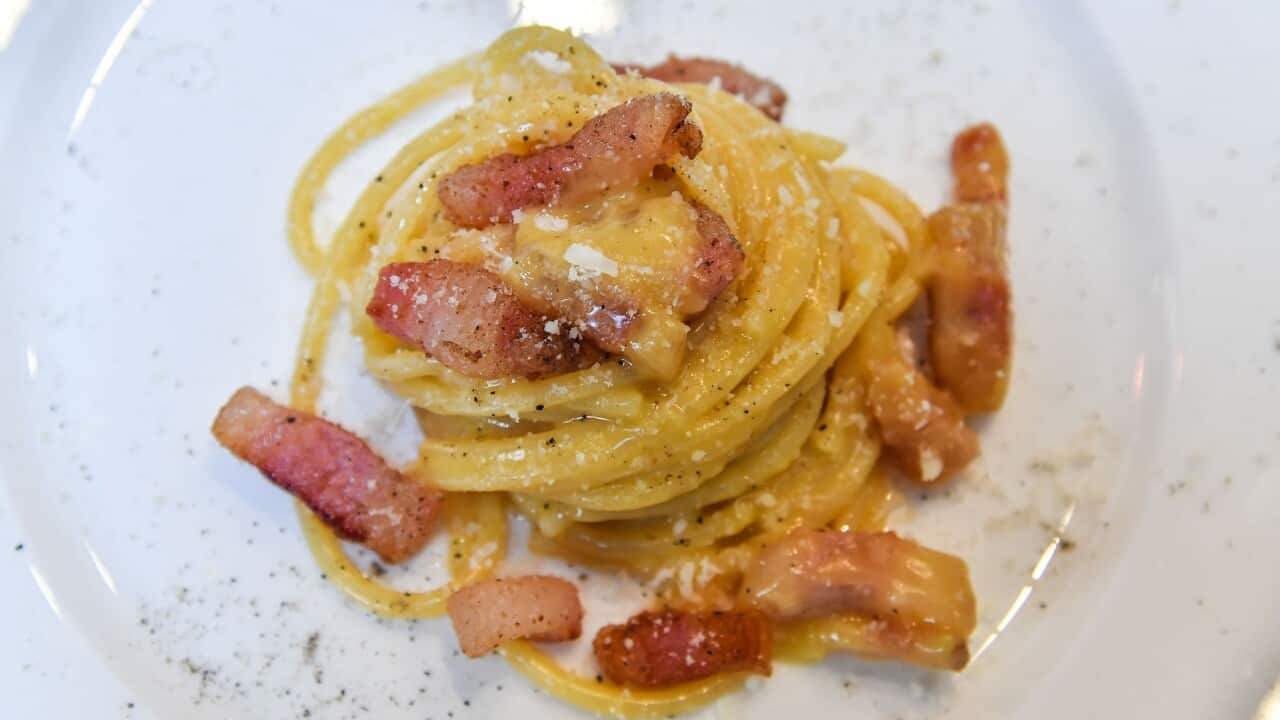TRANSCRIPT
In Italy, food is a serious business.
Many Italians reportedly consider it heresy to, for example, pair pasta with ketchup sauce, or put pineapple on pizza.
There is even a de facto ban on ordering cappuccino after lunch - as cook and food author Nadia Munno found out in Milan.
MUNNO: "Excuse me, can I please have a cappuccino?"
WAITER: "With your pasta?"
MUNNO: "Yes."
WAITER: "This hurts so bad."
Now, food historian Luca Cesari has stirred debate for presenting what he says is the original version of pasta carbonara.
He says he faced a stream of online abuse after posting a video on Instagram.
"I dared to take a historical recipe for carbonara dating back to 1954, the first Italian recipe for carbonara, which was published in the 'Cucina Italiana' (magazine), and simply remade it."
These Rome residents interviewed on the street are equally unhappy.
This woman, Bruna Mari, says the traditional carbonara must be left alone.
"Where did he (Cesari) come from? Nonsense... Everyone has their reasons but what reason does he have? You tell me."
Opinion is divided in the restaurant industry.
Owner Roberto Martelli is among those who say the creamy sauce version is traditional.
"I think it represents the key to tradition in the same way that amatriciana or cacio e pepe represent who we are. Most Roman cuisine comes from the traders who came down from the Apennines, so it recalls tradition a hundred per cent."
The carbonara presented by Cesari was made with Swiss gruyere cheese, garlic, bacon and scrambled eggs, d itching the usual ingredients of Italian pecorino cheese and cured pork cheek to be mixed with eggs to create a creamy sauce.
Cesari says he was trying to show how the recipe has evolved over the decades.
"This has angered the carbonara purists who did not study history and think that our beautiful recipe has always remained identical to itself. Unfortunately this is not the case and there have been hundreds of versions of carbonara."
Alberto Grandi is a professor of food history at the University of Parma, and has also come under fire for questioning established Italian culinary traditions.
He has denounced what he has called "a sort of 'gastro-nationalism that prevents us from reasoning calmly about the themes of our cuisine'."
Professor Grandi has made headlines for saying the country's beloved carbonara dish is actually American, at a time when the government is applying for the inclusion of its cuisine in UNESCO's intangible cultural heritage list.
Luca Cesari, meanwhile, remains undeterred.
He says he is ready to whip up more culinary controversy, with a new video on Neapolitan pizza from the 1800s - made with clams.













